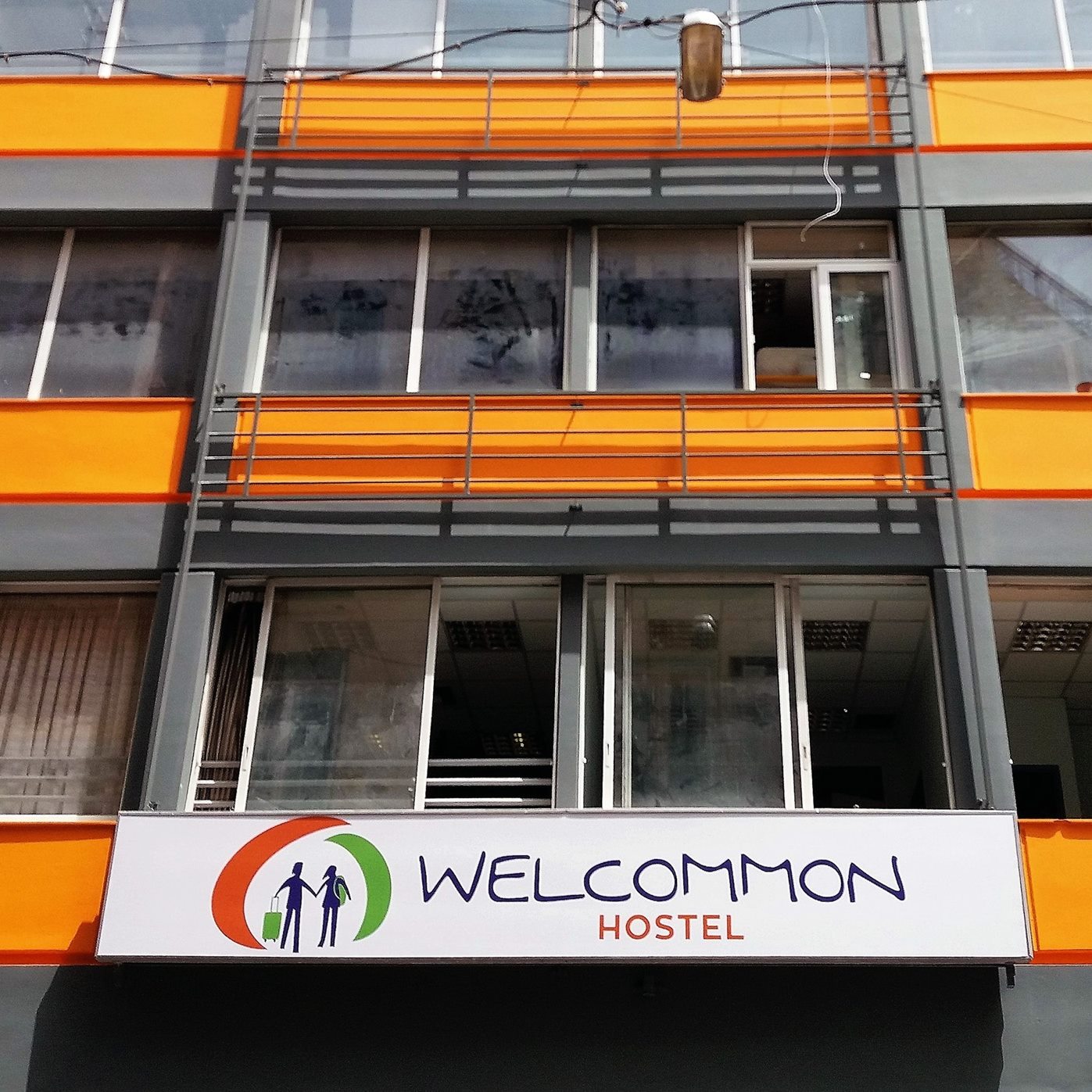The Welcommon Hostel is a responsible hostel using tourism revenues to invest in social activities. First converted from a hospital into a refugee shelter, the building located in Exarchia is now run by the social cooperative Anemos Ananeosis (Wind of Change in English), working for the promotion of social innovation, greenovation and circular economy in Athens. The projects accommodated and developed in the hostel support the social inclusion of refugees, ecological education and climate protection. With its work, Anemos Ananeosis hopes to promote alternatives solutions to social and ecological challenges, while advocating for civic engagement. The existence of socially responsible accommodation in Athens is all the more important as the city is currently facing a tourism boom and a corresponding housing crisis.
When did you start Welcommon and what was the building’s original function?
Welcommon opened in September 2016, as an asylum seekers’ shelter. In our first year, we developed an innovative hospitality approach for the social inclusion of refugees: our idea was not to simply offer a bed, food, and help in leaving the country, but to create an atmosphere that would support people settling if they wanted to remain in the country. At that time, many migrants were passing through Greece and the majority of them wanted to cross borders. With Welcommon we wanted to prepare a social inclusion plan addressing the people who were considering to stay in Greece. Most institutions at the time did not understand this necessity, everyone thought that we were supposed to support asylum seekers in leaving this country rather than preparing a plan for their integration and empowerment here.
We rented a former hospital, owned by a private company that had been abandoned since 2013. We paid a high rent but the building’s infrastructure corresponded to our criteria for the housing of refugees. For the Welcommon project, we looked for a building in the city centre, as we knew the location could also favour the creation of a meeting place between the local community and refugees. We tried to avoid triggering a process of exclusion by opening a housing project in the outskirts of the city, on the contrary, we wanted to enable the interaction between different social and ethnic groups, to make this exchange beneficial for both refugees and locals. Moreover, we were looking for a building big enough to feature both housing and rooms for social inclusion activities.
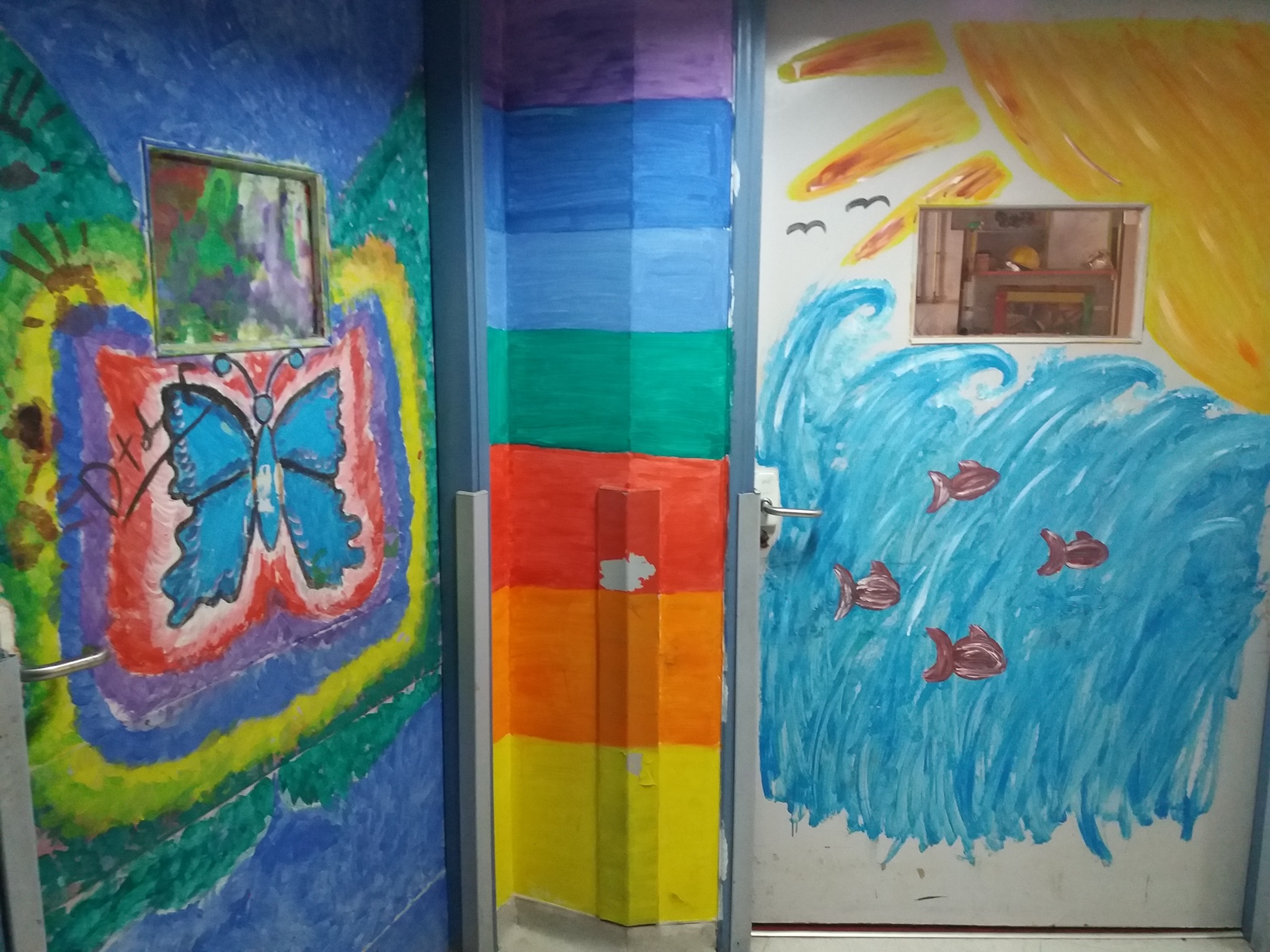
What type of activities have been held in Welcommon?
Welcommon means “welcome in common”, and this is our vision. We did not want to work as service providers but we aim to advocate for social inclusion, gender equality and ecology. We started by providing about 160 rooms to people of about 22 different nationalities, and different religions. We then established a social clinic, where a group of social workers and psychologists supported our growing community with their professional competences. We engaged with some of the most vulnerable groups: families with children, single mothers, victims of rape and trafficking, as well as people with serious illnesses such as cancer or psychiatric problem.
We believe that such a mixed environment supports a vision of coexistence and cooperation. We wished to create a community which would empower people and this was why we developed a series of programs that would help the socialisation of adults and children, help them gain useful skills and support them in developing activities together. We created Arabic classes, English classes, German classes, Greek language and tutoring lessons, theatre, cinema, with the participation and involvement of the refugees. There were many video production activities, theatre performances, socialisation programs.
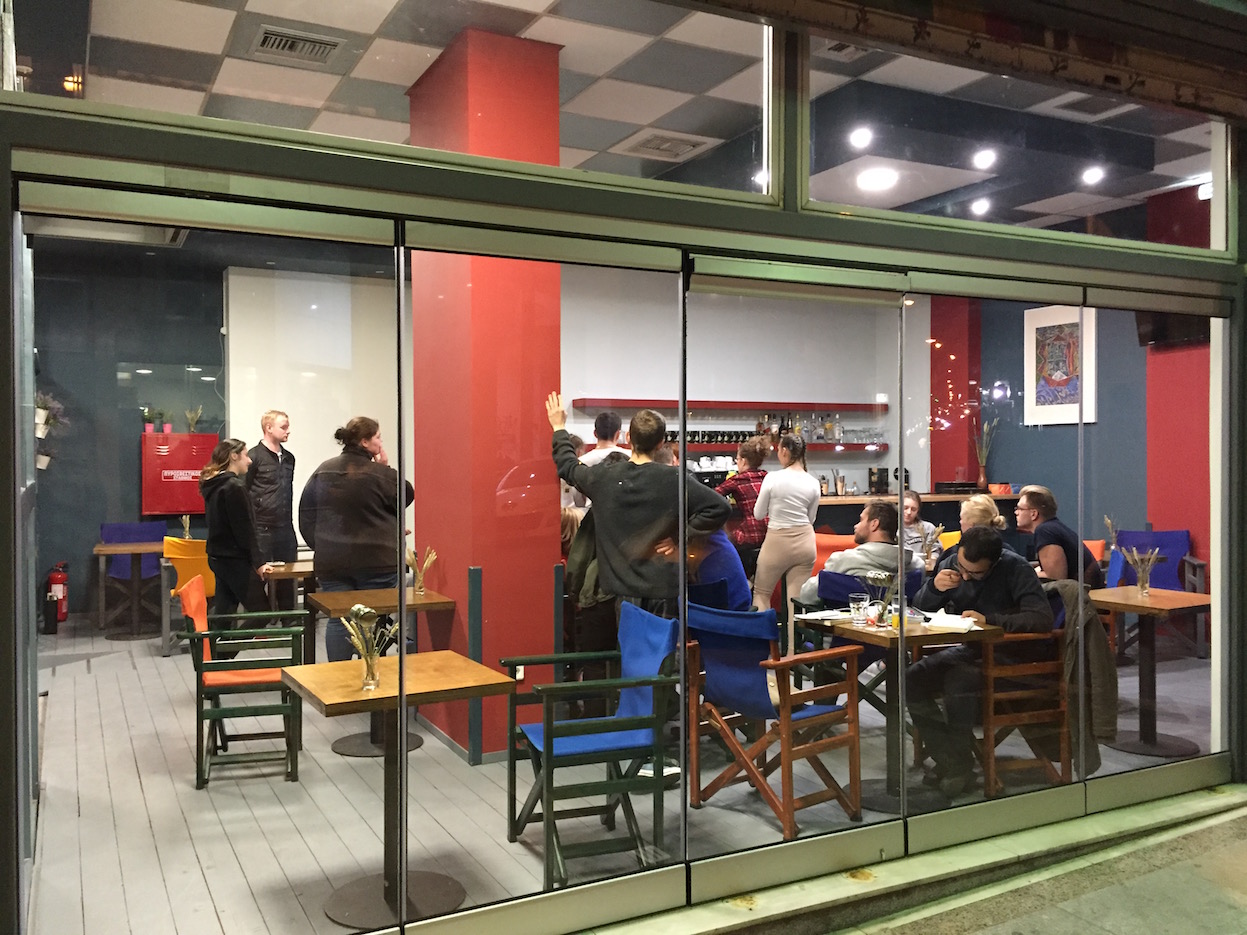
Why did you have to stop this project?
We worked in cooperation with UNHCR, the Development Agency of the Municipality of Athens, as well as with the help of volunteers and with various forms of in-kind support. In January 2018 our funding had been interrupted as the granting agencies considered there was no further need for such transition centres. They shifted towards finding accommodation for refugees only in apartments, as permanent accommodation solutions.
How did you transition into a hostel?
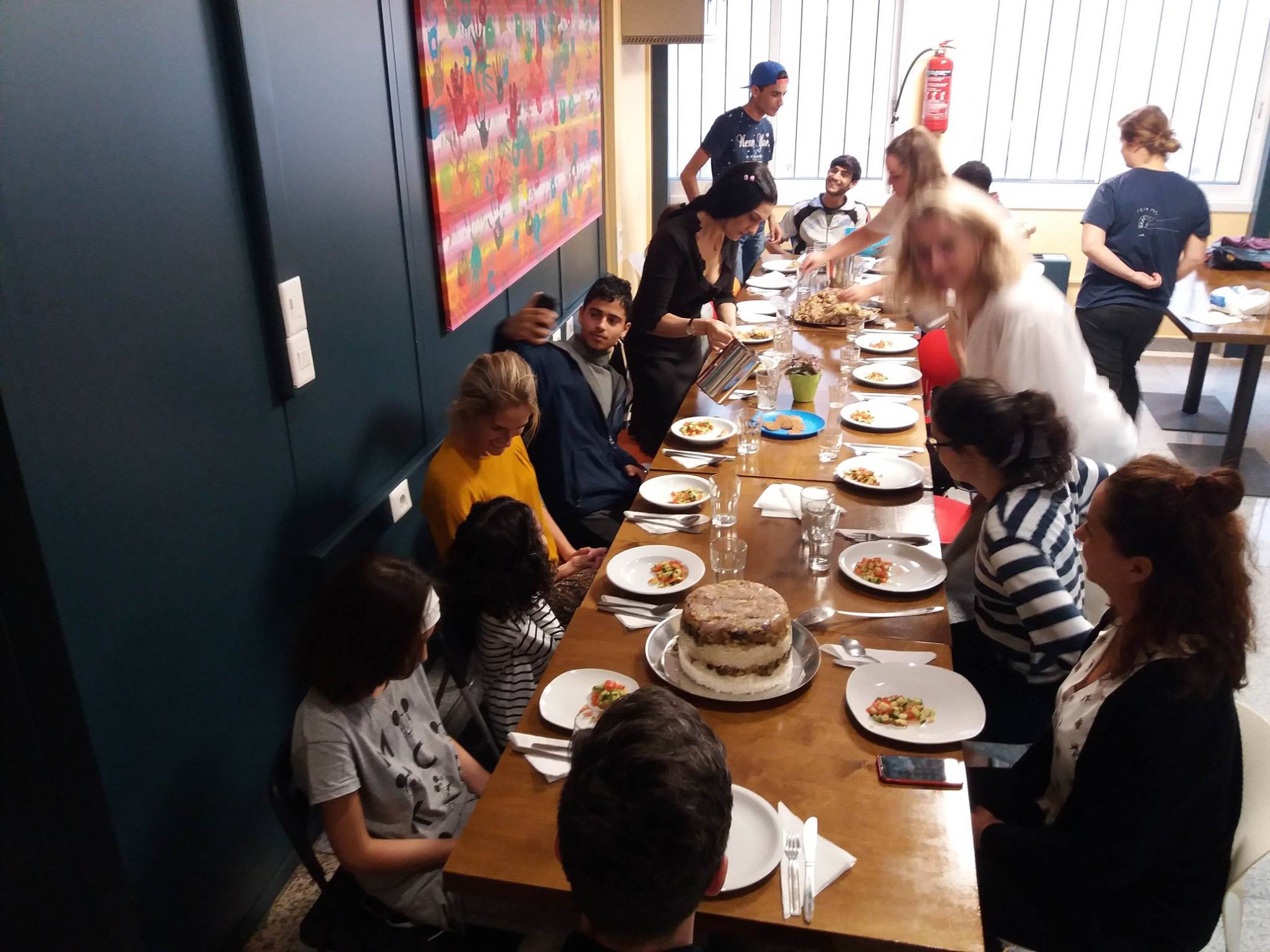
What type of programming do you propose now in Welcommon?
We tried to maintain some of the programmes we had for refugees. Now we have more than 25 children, 60 teenagers and adult participants coming on a daily basis to take part in our programs (with a total of 120 refugees participants since we opened). Our daily program is constantly updated on our Facebook page: we have art therapy, music, theatre, cooking, outdoor activities, gardening and painting. We then propose programmes more specific to the theme of climate protection and recycling.
The social cooperative, organises workshops, activities and seminars for educators about how to experimentally approach the theme of energy transitions with their pupils, we collaborate with 73 schools in Athens about climate protection and energy efficiency – the idea is to mobilise the pupils and push them to organise energy inspections, to propose things and to act as climate activist. And it works in a fantastic way! Thousands of pupils are very active now in Athens for the protection of the climate. We also train young experts on energy issues on how to be energy auditors in schools and other buildings and take initiative not just as technicians but also in cooperation with teachers, parents and students.
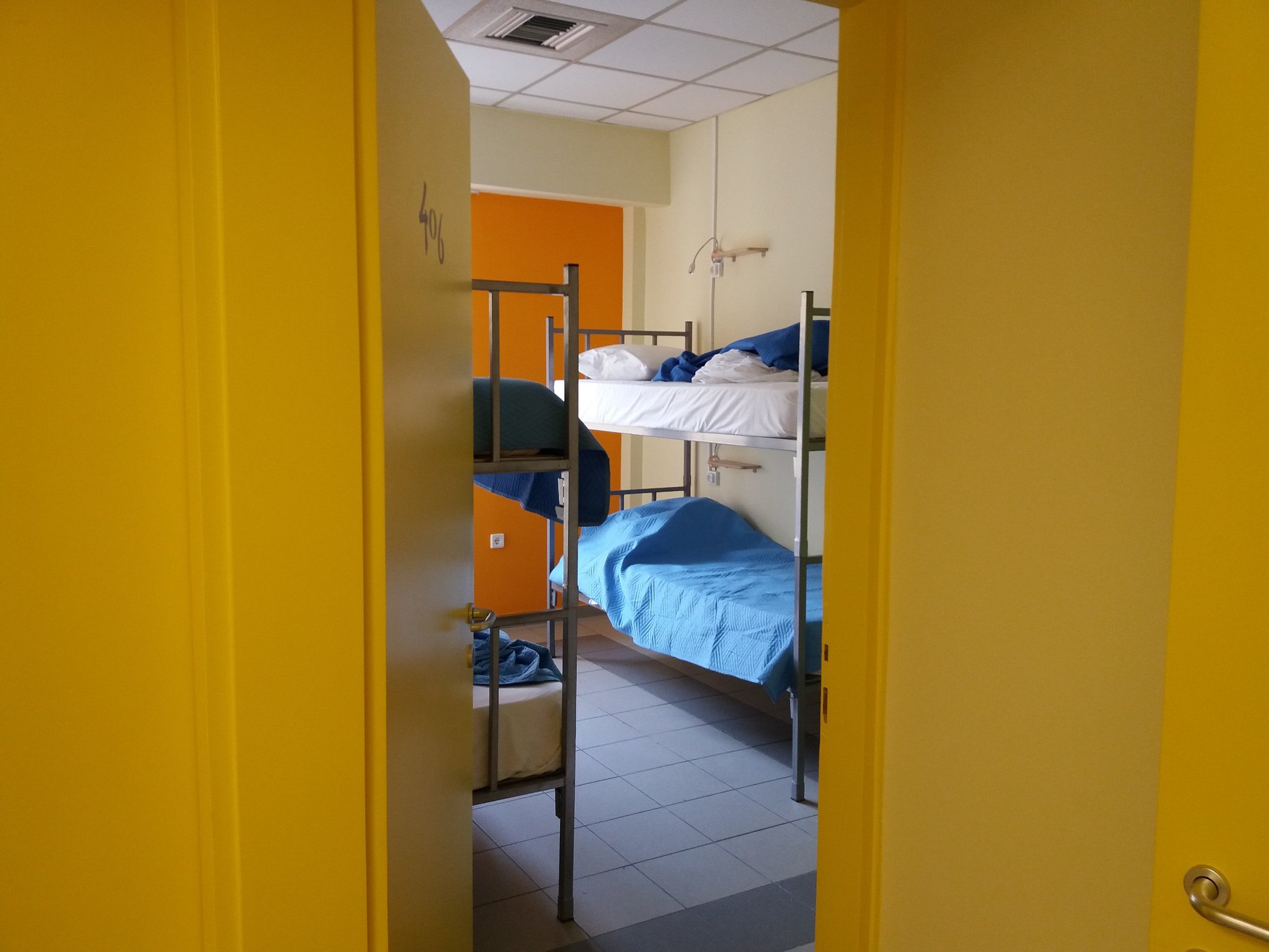
How do you reach out to potential guests?
We cannot select the tourists who visit us according to their interests, but we try to maintain a focus on participation and social-ecological and cultural engagement. Generally, people who stay here prefer us to generalist tourist accommodations, as read about us on our website where our approach, mission and vision are clearly explained. For this reason, we try to keep a price that is not too cheap, so people do not just select us because of the price, but at the same time not too high, to remain affordable.
Moreover, we try to cooperate with universities, schools and organisations that come to Athens to discover another side of the city than the mass touristic one. Our strategy is to create cooperative bridges in order to build networks at European and international level with social cooperatives and NGOs. We are also members of different networks, for example, we are founding members of a network of social organisations and cooperatives for social economy in Greece, we are a member of REVES, we have close cooperation with universities all over the world, Social Economy Europe, REScoop.eu, CICOPA, Housing Europe and similar platforms. We are also part of Le Mat Europe, a network of social cooperatives on sustainable tourism, and of Hostelling International, a big network of hostels that share social goals.
Our business plan is to be able to have a sustainable hostel in order to fund all the others. Today, we need the support of foundations, individuals, companies with social responsibility for sustaining our social program until our hostel is financially fully sustainable to finance our social, cultural and green activities and projects.
As the social project has no income and the costs for the additional expenses for the social activities, the accommodation of our volunteers, the utility costs and the use of infrastructure reach around 8.000-10.000 Euros per month, the hostel is not able yet to cover all the costs. In some activities, participants have to contribute with a fee, others are free of charge. People can rent the room and organise a seminar, although we offer free access to the event spaces for groups staying here. We like the idea of hosting groups that use our facilities for public events, exhibitions and other activities. We welcome people who want to organise events close to our vision, and we hope we can get more visibility and have more and more people visiting us in Welcommon Hostel.
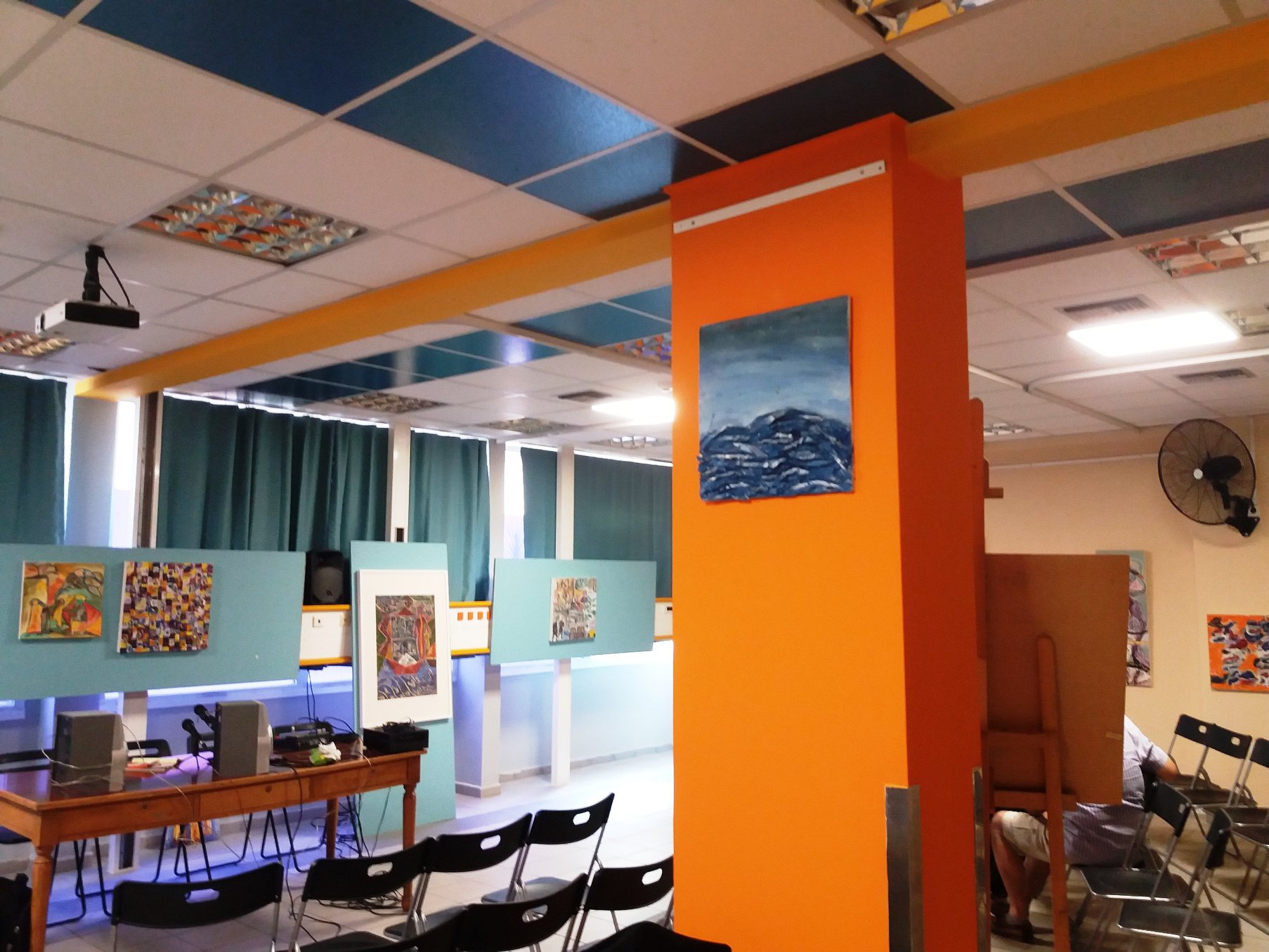
By managing a sustainable hostel, we plan to dedicate more resources to social and ecological activities. While at the moment we do not have the necessary capital and we are not financially sustainable, on the long run we hope to be able to finance all our activities, to invite guests and collaborators, and maintain a continuation of our activities. Due to restrictions on bank funding in Greece, it is essential for the existence of this project to find alternative resources until the hostel can finance the social project on its own. Every form of support is needed so that we can continue our work, which is so necessary as the asylum policies are getting stricter and the integration of refugees into local society is becoming more difficult. We are also looking for funding in order to be able to implement measures and succeed in energy efficiency and renewable energy, or even better in zero emissions, in the near future. We have started discussing with other organisations and cooperatives how we could create an energy cooperative in Athens.
Interview by Levente Polyák with Nikos Chrysogelos, on March 27th, 2019.

